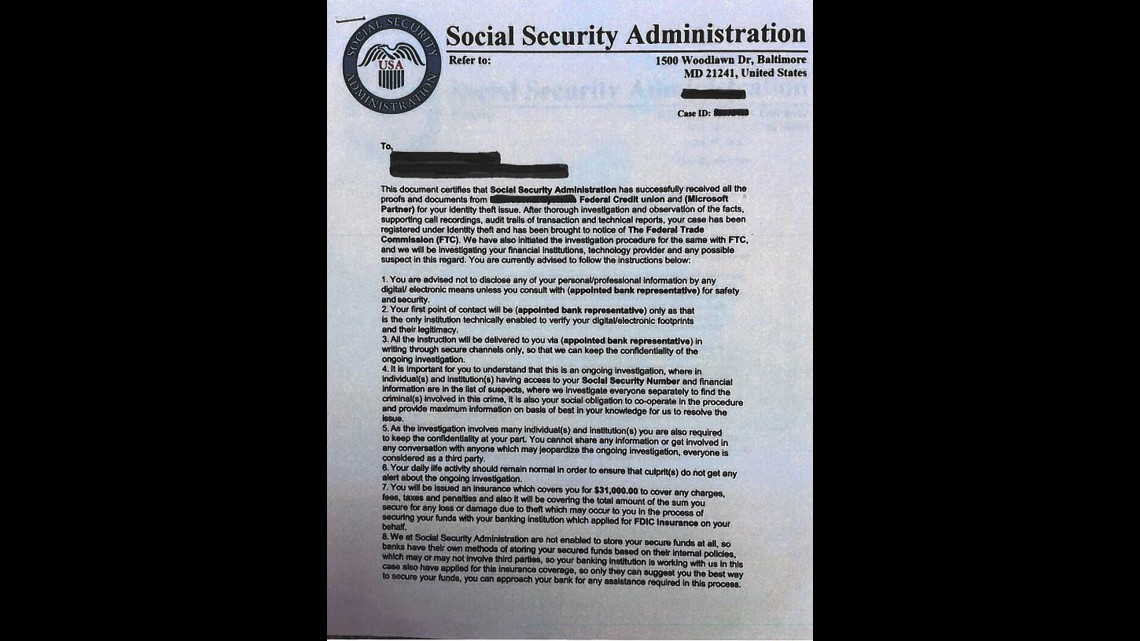So far this year, Prince George's County police have received reports of 22 tech support scams resulting in the loss of roughly $500,000.
PRINCE GEORGE'S COUNTY, Md. — Police in Prince George's County are warning residents about people offering fraudulent tech support around the county. In one case in particular, the victim was sent letters from crooks claiming to be from the Social Security Administration. Now, authorities are asking for the public's help to find the people behind the complex scheme.
Back in June, the victim received a pop-up on their computer saying their machine had a virus and to call a phone number provided. Police say when the victim called the number, they spoke to several people who said they were tech support employees. They also spoke to people who said they were representatives from the victim's bank, and later, officials from the Social Security Administration (SSA).
The scammers emailed the victim fraudulent letters claiming to be from the SSA, advising them that their bank account had been compromised and that the SSA was working with multiple trusted government agencies to assist the victim.


Police say the scammers told the victim that in order to fix the problem, they needed to withdraw money from the compromised account and give it to a representative in person.
Police provided surveillance video and still images of the man who showed up to pick up the cash, including the vehicle he showed up in.


Anyone who recognizes the man or car above should contact detectives at 301-516-1464.
What is a tech support scam?
So far this year, the agency has received reports of 22 tech support scams resulting in a loss of approximately $500,000. In other instances of tech support scams, the victim will receive a computer pop-up message, text message or phone call from a scammer posing as a customer tech support agent. The scammer advises the victim their computer has a virus and has been compromised. To protect the victim’s computer, the scammer states they will need remote access into the victim’s device to resolve the issue. After being given remote access, the scammer tells the victim their financial accounts have also been compromised and transfers them to another scammer who poses as a bank official. The bank official scammer then steals the victim’s money by transferring it into cryptocurrency, purchasing gift cards or arranging an illicit wire transfer.
How to stay safe
PGPD reminds all residents to never give personal financial information to anyone you do not know. If you are worried about software issues on your computer, contact the company managing your software or your anti-virus software company.
.png)









 English (US) ·
English (US) ·